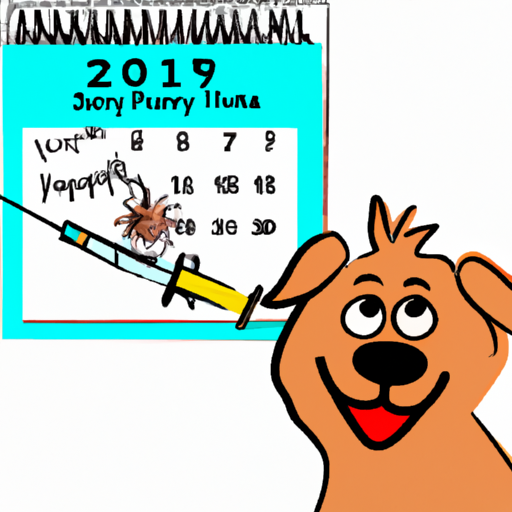As a caregiver, you’re always looking out for the welfare of your loved ones. When it comes to your furry companions, their health is equally important. One of the key health concerns for dogs is Parvovirus, a deadly disease that is preventable through regular vaccination.
Understanding the Canine Parvovirus
The Canine Parvovirus, or Parvo, is a highly contagious viral illness that affects dogs. It primarily affects puppies between six weeks and six months old, but can infect older dogs as well. It is spread through direct contact with an infected dog or by indirect contact with a contaminated environment.
Parvo is serious. It can lead to severe vomiting, loss of appetite, bloody diarrhea, and in some cases, death.
The Importance of Parvo Vaccination
To protect your canine friend from this deadly disease, regular vaccination is crucial. The Parvo vaccine is generally administered in a series of three shots when a puppy is between 6 to 16 weeks old. These initial shots are critical to build up your puppy’s immunity.
For most dogs, a complete series of three vaccinations are recommended:
- First vaccination: 6 to 8 weeks
- Second vaccination: 9 to 11 weeks
- Third vaccination: 12 to 14 weeks
After the initial series, a booster shot is typically provided at one year old.
Frequency of Parvo Vaccinations
The frequency of Parvo vaccinations depends largely on your dog’s risk level.
| Risk Level | Frequency |
|---|---|
| High risk (puppies, unvaccinated dogs) | Every 3 weeks till 16 weeks old, then annually |
| Average risk (adult dogs with completed initial vaccinations) | Every 1 to 3 years |
Recognizing the Symptoms of Parvo
As a caregiver, it’s important to recognize the symptoms of Parvo. Early detection can make all the difference. Symptoms include:
- Loss of appetite
- Vomiting
- Fever
- Bloody diarrhea
If you notice any of these signs, contact your vet immediately.
Frequently Asked Questions
Q: Can my adult dog get Parvo?
A: Yes, but it’s rarer. Regular vaccination can protect your dog at any age.
Q: Can my vaccinated dog still get Parvo?
A: Vaccination greatly reduces the risk, but it’s not 100% foolproof.
Q: What if I missed a vaccine schedule?
A: Contact your vet immediately to reschedule.
In conclusion, regular Parvo vaccinations are vital to protect your beloved canine companion. Always follow your vet’s recommended vaccination schedule and never hesitate to seek professional advice when needed.



